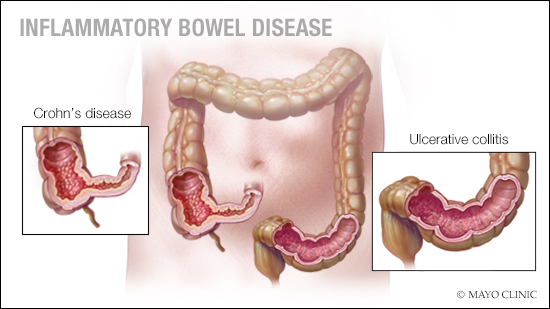-
Living With Cancer: Inflammatory bowel disease and colon cancer — understanding the connection
 Inflammatory bowel disease and colon cancer
Inflammatory bowel disease and colon cancer
You may be worried about the connection between inflammatory bowel disease and colon cancer. It's important to understand that inflammatory bowel disease, which includes Crohn's disease and ulcerative colitis, doesn't necessarily lead to colon cancer. However, if you have Crohn's disease that affects the lower part of your large intestine, this increases your risk of colon cancer. As a result, you'll need more frequent screening for colon cancer to help diagnose and treat it early. In addition, this type of inflammatory bowel disease may limit your choices for colon cancer screening. Here's what you need to know.
Biological therapy for cancer
Biological therapy for cancer uses the body's immune system to kill cancer cells, slow tumor growth and prevent the spread of cancer. It often causes fewer toxic side effects than other cancer treatments. Learn more about the different biological therapies and how they work.
Cancer surgery: Physically removing tumors
Cancer surgery — an operation to remove part of your body to diagnose or treat cancer — remains the foundation of cancer treatment. Surgery often is combined with other cancer treatments, such as chemotherapy and radiation. Whether you opt to undergo additional cancer treatment depends on the type and stage of your cancer, and your overall health status. Learn more about how and why cancer surgery is performed, and what you can expect if your health care provider recommends it for you.







